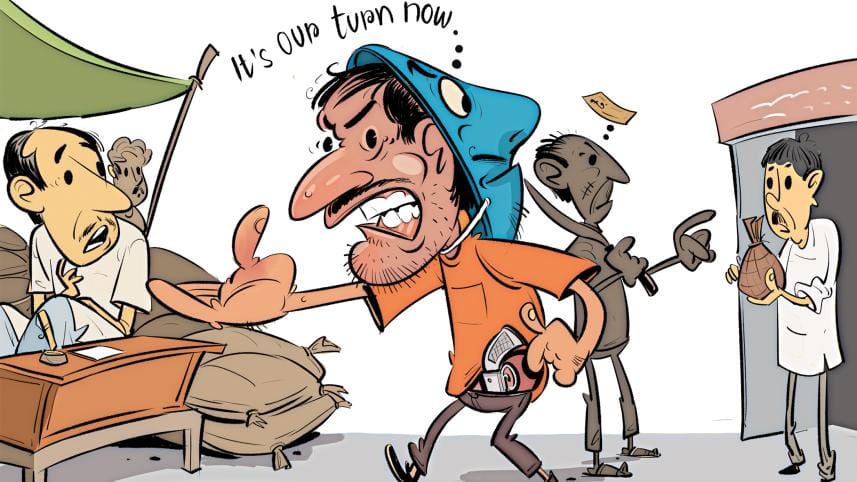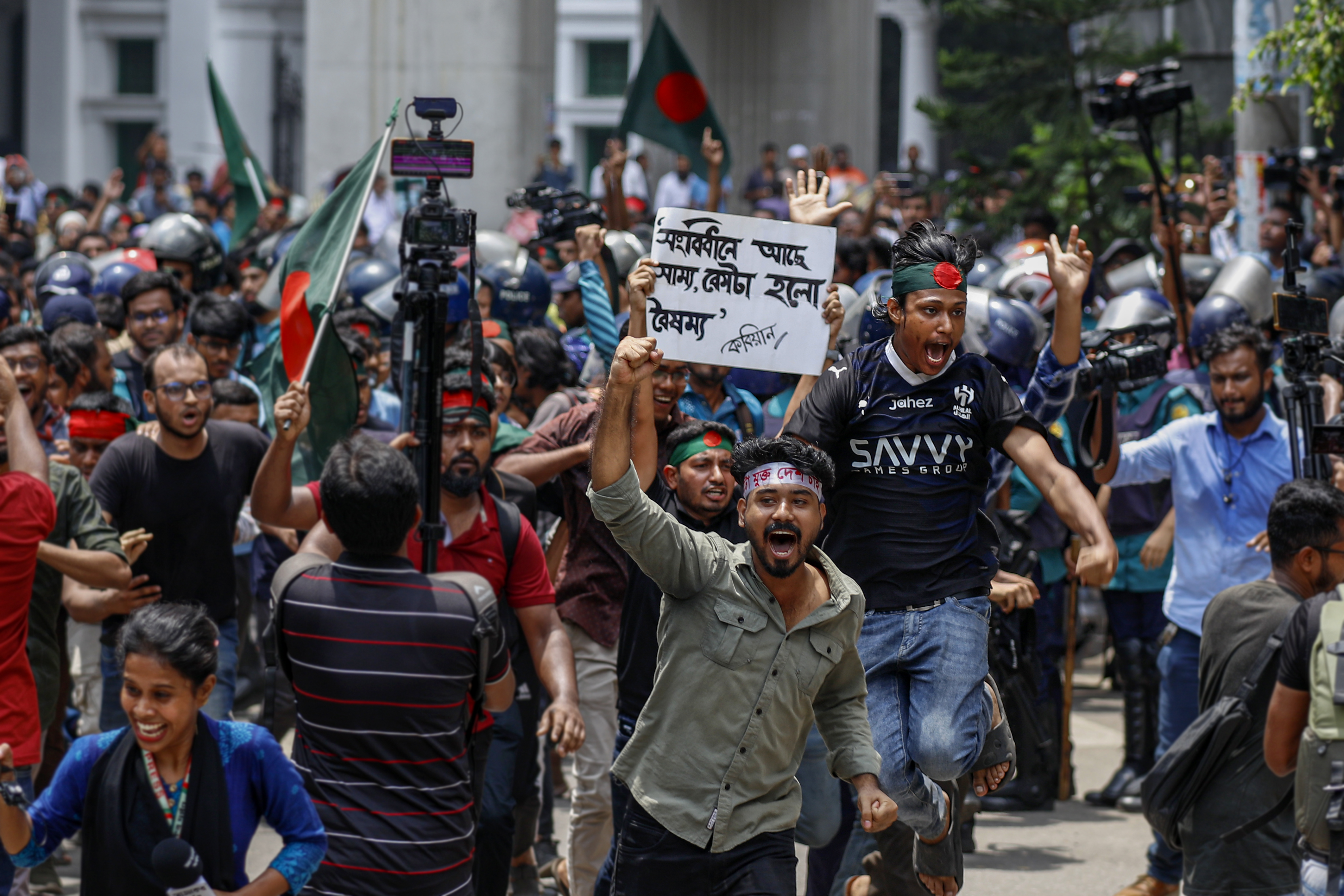Extortion, a cause of high prices, sets alarm bells ringing

Just a day after a mass uprising toppled Sheikh Hasina's government on August 5, a group of people, introducing themselves as activists of a major political party, visited an outlet of a leading footwear maker in Rangpur and demanded Tk 5 lakh in return for allowing the showroom to operate.
The company declined to provide the sum, but the group warned they would come again.
The same day, a businessman running a joint venture factory in Chattogram's Anwara upazila, located more than 550 kilometres southeast of Rangpur, received a phone call from a person claiming to be a leader of the student front of a political party.
The caller demanded money from the businessman, hinting that there would be consequences if the amount was not paid.
Similarly, a group of people demanded Tk 10 lakh from a top official of a real estate firm in Savar, on the outskirts of the capital Dhaka. They threatened to set the firm's offices ablaze unless the money was given.
Such examples do not end here. Over the past week and a half since the political changeover, many businesses have complained of attempted extortion.
Such complaints reverberated at a conference organised by the business community on Wednesday.
Mir Nasir Hossain, a former president of the Federation of Bangladesh Chambers of Commerce and Industry (FBCCI), said extortion was a longstanding concern.
Businesses present at the conference supported his allegations, shouting: "Right, right."
The allegations came several days after Home Affairs Adviser Brigadier General (retired) M Sakhawat Hussain warned extortionists by threatening tough action against perpetrators.
"I have requested the army chief to break your [extortionists] legs … I don't care, go to hell," he said.
"Whoever resorts to extortion -- no matter what party you are associated with -- I ask the people to give them a beating. Those who extort, catch them on the spot. We'll do what needs to be done. We'll restore law and order. The country cannot run like this. We cannot lease out the country."
Even during Hasina's tenure, businesses complained about extortion, a menace that has been blamed for increasing the cost of business and thereby contributing to hikes in the prices of commodities and essentials.
Businessmen said extortion occurred at all stages, from production to transportation and sales, significantly raising commodities prices.
It also reduces the competitiveness of exporters as their costs are raised without any value addition.
However, although businesses have taken a vocal stance against extortion over the years, no government has taken strict steps to curb it.
Instead, when the government changes, the baton of extortion is passed. This was reflected by the experiences of a street food seller in Mirpur's Rupnagar area.
"Some people came to me on Wednesday and said I would have to pay Tk 300 per day from now on," he lamented, adding that he paid Tk 50 per day to ruling party men during the Awami League government's tenure.
Risan Uddin, an apparel seller in the capital's Farmgate, said he had to pay Tk 500 per day to extortionists during the previous government's tenure.
He added that no one had attempted to extort him yet. He further said that some people came on August 7 to enquire about whether he had been facing any problems after reopening his shop. They asked him to inform them if any problem arose.
But judging from their tone, it seemed that they were laying the groundwork so that the money would flow to them in future.
"In fact, whichever party comes to power, we must pay. There is no other way."
Economists believe this is the perfect time to end the culture of corruption and extortion in the county, especially since the interim government has assumed charge in light of students' demand for reforms.
Sumon Howlader, president of the Bangladesh Poultry Association, said extortion was a major reason for the price hike of eggs and chickens.
He also complained that, alongside payments to local extortionists, they are also forced to provide bribes to police at various stages of transport.
"All extortion absolutely fuels costs, but that burden is ultimately passed onto the consumer while the businessmen bear some of the load," Howlader said.
Rashed Al Mahmud Titumir, a professor of Development Studies at the University of Dhaka, said: "When rent-seeking increases in an economy, the burden ultimately falls on people through higher prices of goods."
He also illustrated how this occurs.
"Rent-seeking occurs in many ways, such as by allowing cost-inflated development projects, lending to wilful defaulters using assets that are deposited by small depositors, and by grabbing rivers and forests. Politically influential players get many undue benefits," he said.
All these factors heighten the sufferings of general people. To save the economy from these unwarranted costs, a political change was necessary, and it has now been achieved, he added.
(Jagaran Chakma contributed to the story)





 For all latest news, follow The Daily Star's Google News channel.
For all latest news, follow The Daily Star's Google News channel. 
Comments